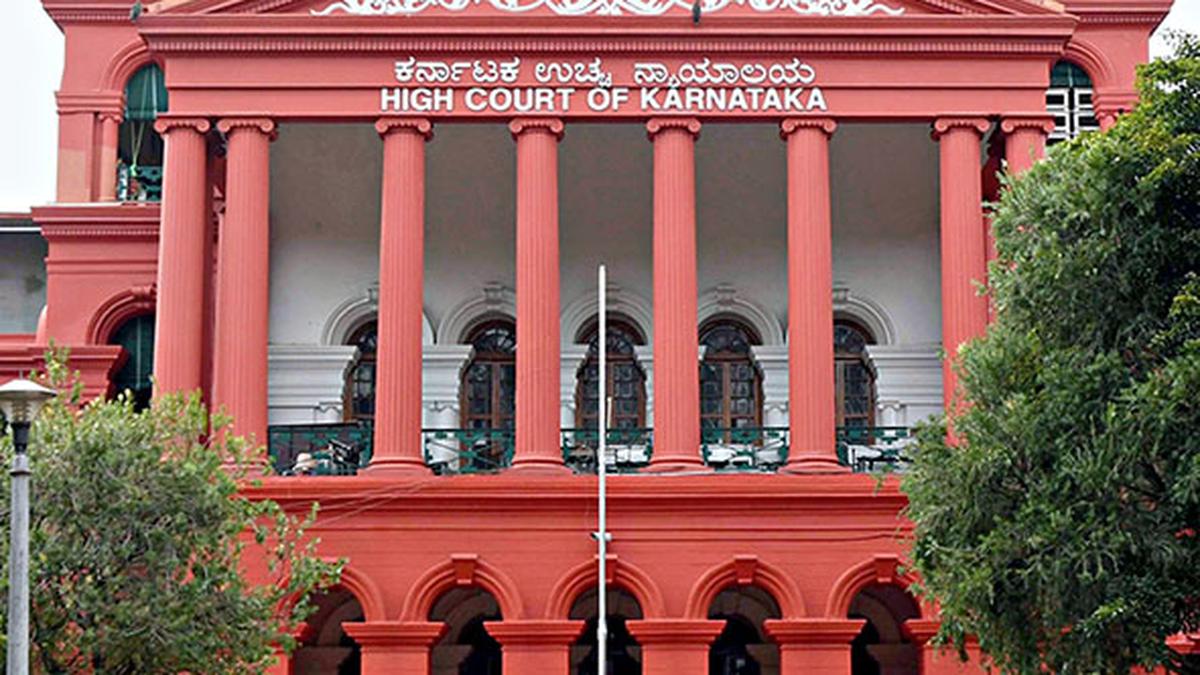 |
|
The Karnataka High Court delivered a significant ruling on Friday, dismissing a petition seeking a Central Bureau of Investigation (CBI) probe into alleged irregularities in land allotments by the Mysuru Urban Development Authority (MUDA). The case centers on the allocation of 14 sites to the wife of Chief Minister Siddaramaiah, B.M. Parvathi. The court's decision represents a major victory for Siddaramaiah, shielding him from a potentially damaging investigation by a national agency. The judge, Justice M. Nagaprasanna, meticulously examined the evidence presented and concluded that the investigation conducted by the Lokayukta police was thorough and did not warrant a transfer to the CBI. The court's rationale hinges on the assessment that the Lokayukta's work did not exhibit any signs of bias, partiality, or negligence, effectively dismissing claims of a shoddy investigation.
The court's order explicitly states that the existing material in the case does not indicate any need for a CBI investigation. The judge's careful review of the investigation reports revealed that the Lokayukta police had considered all relevant public documents, including notifications and statements from accused individuals. This comprehensive approach, according to the court, negates the need for any further investigation by the CBI. The court's judgment highlights the importance of preserving public confidence in existing investigative bodies. The decision implicitly underscores the competence and integrity of the Lokayukta police force in handling this high-profile case. By rejecting the petition for a CBI probe, the court demonstrates its faith in the Lokayukta's ability to conduct a fair and impartial investigation.
Furthermore, the High Court expressed significant reservations about the petitioner, Snehamayi Krishna, a Mysuru-based social activist, questioning their bona fides. The court pointed out the apparent inconsistency in Mr. Krishna's actions. Initially, he had requested a probe by the Lokayukta police; however, a mere three days after the High Court upheld the governor's permission for an investigation into Mr. Siddaramaiah, and just hours before the Lokayukta registered an FIR, he abruptly sought a CBI probe. This rapid shift in approach raised questions regarding the petitioner’s true motivations, leaving the court to suspect that the request for a CBI investigation might be politically motivated or strategically timed to exert pressure on the ongoing legal process. The court deemed this behavior as contradictory and lacking in transparency, further bolstering its decision to uphold the Lokayukta's investigation.
The court's decision is not simply a procedural matter; it carries significant political implications in the context of Karnataka's political landscape. The case has been closely followed due to the involvement of the Chief Minister. The ruling could potentially influence the trajectory of the ongoing political discourse, with implications for upcoming elections and public perception of the governing party. While the High Court's decision may be seen as a victory for the Chief Minister, it is primarily a demonstration of the court's confidence in the existing investigative mechanism and a critical assessment of the petitioner's actions. The court's rigorous scrutiny of both the evidence and the petitioner's motives emphasizes the importance of procedural fairness and the need to uphold the integrity of investigative processes in India's judicial system. The decision sets a precedent for future cases involving allegations of wrongdoing against high-ranking officials, emphasizing the role of courts in scrutinizing the necessity and propriety of transferring investigations to national agencies like the CBI.
The case also highlights the complex relationship between the various investigative agencies in India. The interplay between the Lokayukta, a state-level anti-corruption agency, and the CBI, a national-level investigative body, is often subject to scrutiny. The High Court's ruling underscores the importance of allowing state agencies to complete their investigations before resorting to transferring cases to national agencies. This decision underscores the need for a clear demarcation of roles and responsibilities, ensuring that investigations are conducted effectively and efficiently without unnecessary duplication or delays. The court's decision reinforces the idea that the CBI should not be readily invoked as a replacement for state-level investigations but should be reserved for instances where there is credible evidence of serious flaws or biases in the state-level probes. The court's careful consideration of the case sets a precedent for future cases with similar characteristics, emphasizing the judicial system's commitment to fairness and efficiency.
Source: No need of probe by CBI into MUDA case, says Karnataka High Court
